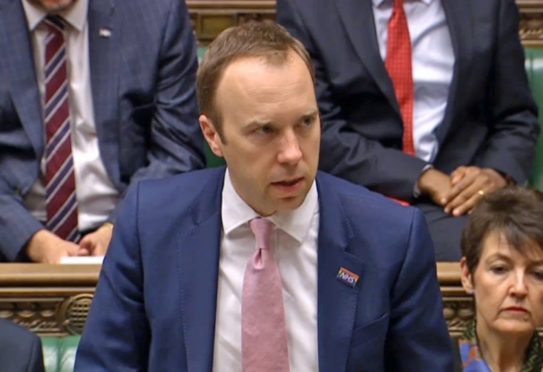Emergency measures to tackle the coronavirus outbreak could weaken legal protections for disabled and older people, charities and human rights groups have warned.
Campaigners say the Coronavirus Bill, which is likely to become law this week, represents a “real and present danger” to the lives of disabled and elderly people as it undermines obligations in the existing care act.
Disability Rights UK said it had “serious concerns” about the implications of the Bill on human rights, especially the rights of vulnerable groups, including disabled people.
It fears that it will effectively free local authorities of their duties to provide social care to society’s most vulnerable.
Health Secretary Matt Hancock, opening a Commons debate on the Bill, told MPs that legislation was necessary and would allow ministers “to fight the virus with everything we’ve got”.
“Coronavirus is the most serious public health emergency that has faced the world in this century. We are all targets, but the disease reserves its full cruelty for the weakest and the most vulnerable.
“To defeat it we are proposing extraordinary measures of the kind never seen before in peacetime. Our goal is to protect life and to protect every part of the NHS.
He added: “Of course there are significant departures from the way we normally do things, but they are strictly temporary, and I think they are proportionate to the threat we face and they’ll only be activated on the basis of the best possible scientific evidence.”

Labour’s health spokesman Jonathan Ashworth said the Opposition would with “a very heavy heart” support the Bill, which is likely to reach Royal Assent on Wednesday or Thursday.
He said: “We as the Opposition support this bill with a very heavy heart, heavy not just with the shock and grief that this deadly virus has brought, but also with the very real threats that emergency powers of this nature pose to human rights.
“The Bill contains the most draconian powers ever seen in peacetime Britain, powers to detain and test potentially infectious members of the public including children in isolation facilities, powers to shut down gatherings which could impede the ability to protest against the overall handling of the crisis.
“It needs no explanation and very little imagination to understand the huge potential for abuse that powers like these and others in the Bill.”
The Bill also allows for a temporary change of the Mental Health Act to make it easier to section people into mental health facilities, and to keep them detained there for longer periods.
Other elements of the Bill give legal force to the closure of schools and nurseries, allow ministers to ban gatherings, and give extra powers to intervene if the government suspects anyone is disrupting the distribution of food.
Another element would permit the closure of the UK’s borders if too many border staff fell ill.
